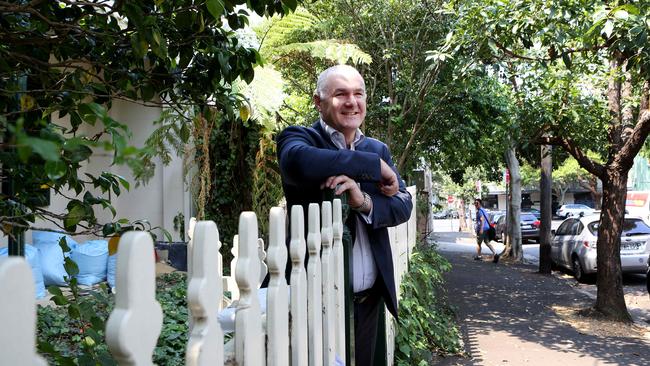Three things to know in a perfect property market
Buyers and sellers are equally matched as prices drift but these recent changes will dictate the shape of the next rebound.
Business
Don't miss out on the headlines from Business. Followed categories will be added to My News.
You don’t see this too often – the perfect property market. Just now in the residential sector we are seeing a rare example of a market in equilibrium.
This is not to say it’s an ideal situation by any stretch of the imagination.
But for investors when prices are going nowhere, it does offer a level playing field.
While analysts might be preoccupied with problems such as the “mortgage cliff”, we can’t find much evidence of gloom or doom in the bank results.
Instead, we have a residential market that is resetting. In the short term there will be a test of resilience when the spring auction season may trigger more selling than usual.
But in the medium term there are three important developments emerging that every investor should know.
Small may be beautiful
For investors, there is the distinct prospect that units, the poor cousin of the stand-alone home, will “outperform” houses in the next decade.
Yes, or courses, houses – most of the time, in most places – deliver better capital gains than units because of land value. The thing is that house prices surged off the radar during the pandemic as people rushed back to the family home.
Two years later, we are looking at a return to normal – a reversion to the mean, especially as people are coming back to the CBD and departing the family home in the middle-ring suburbs.
House prices rose at double the pace of unit prices throughout the pandemic era. If we have anything close to residential reversion to the mean, then units should outperform houses.

To be precise, this is what actually happened. The gap between the average unit price and the average home price was steady for decades at nearly 8 per cent. Today it sits more than three times higher at 28 per cent.
As the head of research at property research group CoreLogic, Tim Lawless, told The Australian this week: “Underlying land value has been the core issue for many years, but units might have a decent headstart over the next 10 years – there is a wider than average value gap with homes just now … and the biggest factor is that we have undersupply across the high-density sector.”
As Lawless makes clear, the underestimated factor is that – believe it or not – there is a looming shortage of apartments. The rush of apartment building you can see across the cities today reflects approvals signed off during Covid. In the years ahead, there is not enough high-density accommodation coming down the line.
Lending to investors
For investment borrowers, lending rates for interest-only loans are now virtually the same as the rate charged to owner-occupiers. This is a major change from the trend established in recent years.
You might recall that one of the big restraints put on the investment property market was the introduction of so-called “macroprudential” rules in 2014 that pretty much quashed activity in the investment market, especially among interest-only investors.
For most of the last decade, it has been an unwritten rule in property lending that owner-occupiers get the lowest rates, investors will always pay more, and self-managed super funds will pay the highest rates of all.

Just quietly, the major banks have been doing an experiment over the past year taking advantage of a settled market to make some key changes. As the Canstar group’s Steve Mickenbecker tells the Money Puzzle podcast this week: “In short, investors are now paying more or less the same rate on interest-only loans as owner-occupiers do.”
There is a strong argument that as an investor there is no reason at all for you to have a principal-and-interest arrangement – if your plan is to sell the property down the track. If investors don’t have to pay any more than owner-occupiers, interest-only loans will come roaring back once the residential market recovers from its current torpor.
Bidding against Canberra
The most controversial development is that investors will soon be competing with the government in the housing market as the Albanese government’s Help To Buy scheme is launched next year. This is the plan to assist 40,000 home buyers through a shared equity arrangement where the government will share up to 40 per cent ownership with the homebuyer – the proceeds are split when the house is ultimately sold.
Applicants for the still-to-be-detailed federal scheme are limited to a maximum salary of $90,000, or $120,000 for couples. Applicants also only need a 2 per cent deposit of the home price – an arrangement that could easily lead to applicants buying a house for a lot more than they would have considered otherwise.
This scheme, combined with a string of related schemes – particularly the First Home Guarantee scheme, which already has 50,000 participants – will distort the market, especially at entry-level prices. At best, such schemes do actually increase the number of homeowners in the market, but they also lift prices across the board.
In the UK, the Cameron conservative government launched a giant Help To Buy scheme. Four out of 10 sales of newly built homes over the last five years used the scheme. This year the UK parliament reviewed the scheme and found the £29bn ($57bn) scheme “inflates prices by more than its subsidy value in areas where it is needed the most”.
Just now, investors remain very much on the sideline in the residential property. They are waiting for rates to peak and demand to outmatch supply. When they return they will find a changed market where these three developments are going to make a real difference.
More Coverage
Originally published as Three things to know in a perfect property market





